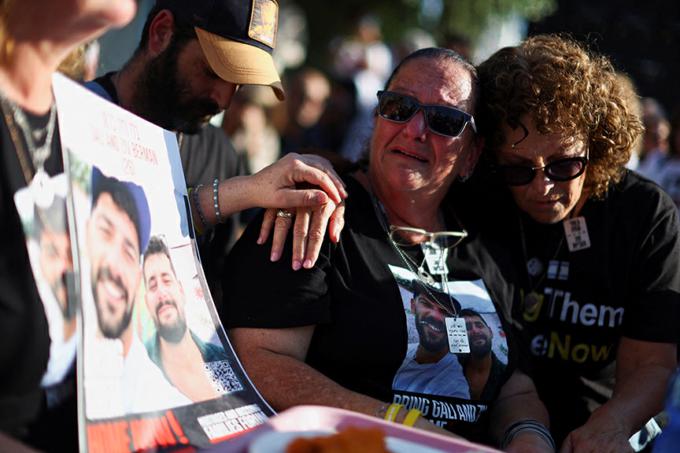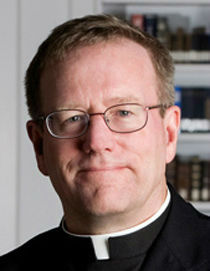
Spirituality
In classical moral philosophy, an intrinsically evil act is one that is, by its very nature, so disordered that it could never be justified or permitted.

Barron
Last week, the presidents of three Ivy League universities -- Harvard, MIT, and Penn -- appeared before Congress to address the issue of anti-Semitism on their campuses, in the wake of the conflict between Hamas and the state of Israel. In their formal statements as well as in the conversation with the congressional committee members, they acknowledged the tension between free speech and the legitimate regulation of certain types of provocative rhetoric. But as the dialogue unfolded, Rep. Elise Stefanik, a Republican from New York, became increasingly impatient with what she took to be the presidents' diffidence regarding extreme forms of anti-Semitic speech at their universities. She finally pressed each one of them: "Would calling for the genocide of Jews constitute a violation of the code of conduct at your school, yes or no?" Astonishingly, each of them balked, insisting that it depended upon the context.
All three women have justifiably faced massive blowback and calls for their resignations, due to the baffling lack of moral clarity in their statements. I should like to explore, however briefly, what has made this kind of moral opaqueness and muddle-headedness possible. First, in the minds of far too many people today, the category of the intrinsically evil act has disappeared. In classical moral philosophy, an intrinsically evil act is one that is, by its very nature, so disordered that it could never be justified or permitted. Good examples of this include slavery, rape, the direct killing of the innocent, and acts of terrorism. Nothing in the circumstances surrounding such acts or in the intentionality of the one performing them could ever turn them into something morally praiseworthy. When we lose a sensitivity to the intrinsically evil, we fall, automatically, into a moral relativism, whereby even the most egregiously wicked act can be justified or explained away. To give just one obvious example, abortion, which involves the direct killing of the innocent, is justified by millions today on account of its purportedly positive effects.
The great Catholic moral philosopher Elizabeth Anscombe was formed in the highly relativistic ethical thinking that was fashionable in the early 20th century. Her professors blithely taught that moral statements had no real objective referent; they were rather simply expressive of the feelings of those who uttered them. But when she saw the newsreel films of the liberated Nazi death camps, which showed piles and piles of corpses, she knew that she was seeing something intrinsically evil, something objectively wicked. And consequently, she abandoned the philosophy in which she had been trained. Sadly, the very relativism and moral indifferentism that Anscombe rebelled against are back with a vengeance. Just how far our own culture has embraced this very bad philosophy was revealed last week in Congress. For in a way, Rep. Stefanik was asking the ultimate softball question: Do you think that inciting people to genocide, the wanton and indiscriminate killing of an entire race of people, is wrong? To be met with the answer, "Well, it depends upon the context" signaled to her, quite correctly, that her interlocutors had moved into complete and dangerous moral incoherence.
Another reason for the inanity on display at the Congressional hearing is the tendency, so typical in woke circles, to divide the world into the simplistic categories of oppressor and oppressed. The roots of this are in Marx and Nietzsche in the 19th century as well as in Michel Foucault and the Frankfurt School theorists in the 20th century, but it has spilled onto the streets largely through the ministrations of the contemporary professoriate in so many of our universities. On this reading, there are simply good guy oppressed people and bad guy oppressors, and once we have sorted everyone into one or the other category, our moral reflection is essentially done. So, whites, Westerners, men, straight people, and Christians are under suspicion, while people of color, those from the global East or global South, women, gays, and non-Christians are lionized. The motives of the first group are routinely questioned, while those of the second group are routinely praised; the first contingent is given the benefit of no doubt, and the second is given the benefit of every doubt. Nuance, careful distinctions, subtle moral reasoning -- who needs them, once we've decided who is oppressor and who is oppressed? So why not accept a sweeping condemnation of the bad groups? And what's wrong, therefore, with chanting, "From the river to the sea, Palestine will be free," which, by the way, is functionally equivalent to what the Ivy League presidents were implying in their reluctance to condemn the genocide of Jews?
Might I suggest that the great tradition of Catholic social and moral thought would be a very healthy corrective to the errant speculations evidenced last week in Congress? Let us apply it to the recent conflict in the Middle East. Was Hamas' attack on Israel intrinsically evil? Yes. Does Israel have a right to defend itself? Yes. Can Israel, in the undertaking of its legitimate self-defense, do so disproportionately and indiscriminately? No. Those responses are, appropriately, both definitive and sufficiently nuanced. If I might put it this way, the answers given by the Ivy League presidents last week were nuanced when they shouldn't have been and definitive when they shouldn't have been.
And may I observe that we should not miss this moment? That appalling Congressional testimony served to blow the lid off of an increasingly dysfunctional culture on the campuses of our universities, which have become, sadly, not places where truth is sought, but hotbeds of woke ideology. Donors, parents, alumni -- wake up. Do we want to be sending our kids to schools whose presidents cannot muster the intestinal fortitude to resist calls for genocide?
- Bishop Robert Barron is the founder of the global ministry, Word on Fire, and is Bishop of the Diocese of Winona-Rochester.
Recent articles in the Spirituality section
-
Pushed off the platformMichael Pakaluk
-
Advice to fathersMichael Pakaluk
-
The higher you go liturgically, the lower you should go in service of the poorBishop Robert Barron
-
The Easter Season is the fleshly seasonMichael Pakaluk
-
Ripley and RupnikEffie Caldarola





